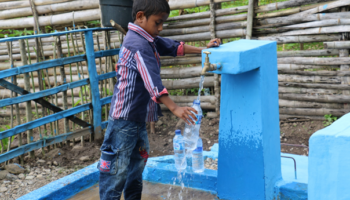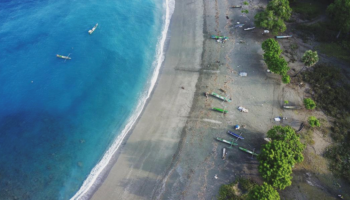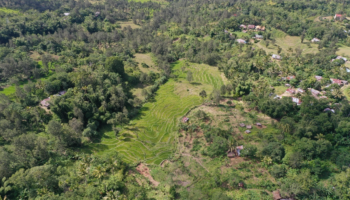Project Preparation & Implementation Programme for Timor-Leste (PPIP):
supporting the identification, preparation, and implementation of technically, financially, economically, environmentally, and socially sound investment projects in the sectors of Solid Waste, Forestry, and Water supply, sanitation and drainage.
Accessibility to water supply and adequate access to sanitation remains low, and very low for the poorest quintile of the population. Most sanitation systems consist of simple pit latrines and poor-quality septic tanks usually directed to the stormwater or drainage system or the waste is directly plumbed there. Waste faecal… Solid waste and its current inadequate treatment are identified as a growing concerning issue and threat to the environment and public health across Timor-Leste. Waste and its inadequate management constitute a serious problem in itself, and there are strong links to other areas of concern: Drainage and stormwater pollution and… Alarmingly, the forest cover of Timor-Leste is decreasing at 1.7% annually, a rate which is among the highest in Asia. Large contiguous areas of any one type of forest are rare, and over half the total lands in the country are called ‘mosaic land use’, with settlements dispersed throughout the…Water supply, sanitation, and drainage (WSS&D)
Solid waste sector
Forestry sector
Capacity building and project design workshops for the Timor-Leste Commercial Forestry Project
Lead by: Phillip M. Young, Key Experts & Agricultural Economist
COWI’s PPIP Forestry Project Design Team, conducted three capacity building and project design workshops for the Timor-Leste Commercial Forestry Project (TLCFP).
The workshops covered a range of forestry-related topics. Firstly, participants were introduced to the Savings Book Approach, which offers support to smallholder forestry investors during the early stages of tree growth, taking inspiration from successful implementations in Vietnam. This approach will be adapted and applied to the context of Timor-Leste. Additionally, there was a presentation on the Design, Costing, Analysis, and Impact of TLCFP, focusing on the benefits for both smallholder and commercial forestry investors, as well as the project’s implications for the economy of Timor-Leste. Lastly, a presentation on the relative importance of the three main forest tree products (firewood, high-value timber, and carbon credits) and the proposed smallholder support programs was shared.
The workshops attracted a diverse group of stakeholders, including HE Fernandino Vieira da Costa from the Secretary of State for Forestry, Dr. Iotam Lerer and other representatives from the European Union Delegation, the Chief of Cabinet SoS Forestry, and several other esteemed participants.
Mr. Philip Young, PPIP’s Team Leader and Economist, acknowledged the significance of these workshops, as they provided an opportunity to discuss the establishment of a commercial forest industry in Timor-Leste. He expressed gratitude for the active participation and valuable contributions that were made throughout the sessions. The PPIP team is pleased to announce that the TLCFP Feasibility Study Report has been drafted and delivered to the European Investment Bank for review and feedback.








